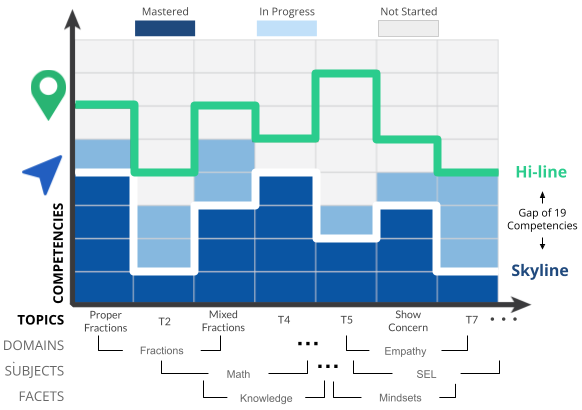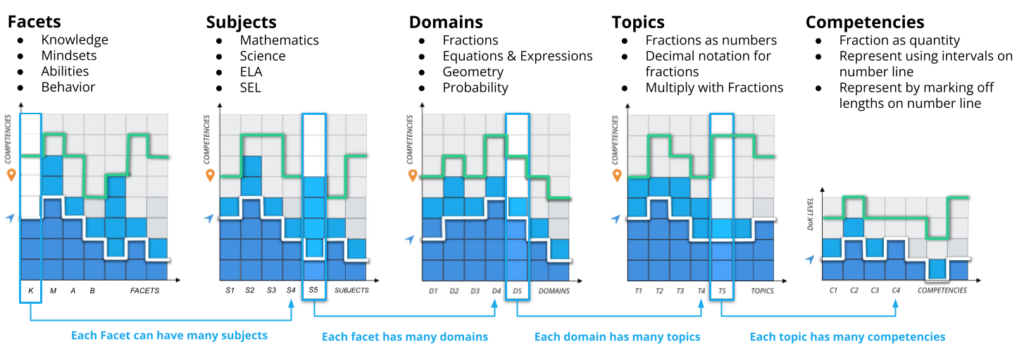Designing Navigated Learning for Personalization
I have spent over five decades of my life in wonderment about how complex systems emerge from simple principles. I have also had the opportunity to lead teams that have innovated with research and developed technologies that hundreds of millions people use. But, all of those addressed complicated systems that have predetermined solutions where we scale through replication. They did not tackle truly complex systems where you cannot scale through replication. So, capitalizing on my education, professional and life experiences, and my passion, I ventured out to understand how one can influence complex systems, to accelerate progress toward desired outcomes. Specifically, I have focused on the complexity of learning and complex learning ecosystems. I seek to understand why and how humans learn, what are the barriers to establishing a tight closed-loop between research and practice in learning, and how we can engage all stakeholders to enable systemic change.
Initially, I have spent decades of work at Google, Yahoo, and Xerox Research developing products addressing complicated problems such as Google Maps, Google Translate, and other Language Technologies, Yahoo Finance, Sports, and the creation of digital rights management technology at Xerox Research. Starting as a “20% project” at Google in 2009, and then at Navigator Labs since 2011, I have spent more than a decade and a half working on developing the technology for personalized learning. I have validated the efficacy of Navigated Learning by implementing it in over 110 projects across disciplines and geographies at Navigator Labs.
Navigator Labs is a non-profit education research and technology organization with a mission to honor the human right to education. Navigator Labs, working with educators, researchers, content, and technology providers,
Navigated Learning
The central approach with Navigated Learning (NL) is to dynamically understand learners comprehensively across all facets of knowledge, skills and mindsets, and with precision for every competency. We call this “locate the learner”. We then use this location of the learner and their chosen learning destination to recommend personalized and adaptive pathways of resources.

NL organizes the learning space into well structured competencies. The competencies are organized as taxonomies that may have a dependency on certain other competencies and have metadata, such as depth-of-knowledge and decay function to model the loss of mastery over time. There are many facets of learning such as Knowledge, Mindsets, and Community Engagement. Each facet has many subjects. For example, the knowledge facet has subjects such as Math, English, Industrial Electrician, and Cyber Security. NL defines a taxonomic hierarchy as facets → subjects → domains → topics → competencies → micro-competencies.
A learner’s proficiency is tracked for every competency and visualized as “Not Started”, “In Progress” and “Mastered” with respect to learning the competency. For each competency, we process the learning activities data to update the proficiency in terms of each learner’s performance on assessments, portfolio of learning activities, depth-of-knowledge (DoK) and social interactions in terms of self-expression with comments or sharing. When the learner has a performance score above a specified threshold, we represent that the learner has mastery in the corresponding competency.
The following figure depicts the sequence of line segments (together a polyline) that covers the highest competency that a learner has mastered across all topics representing the learner’s current location which we call the skyline (white polyline). Similarly, the sequence of line segments (together a polyline) that covers the set of competencies that the learner wants to master to reach their learning destination, we refer to as the hi-line (green polyline). The learner’s journey is from their skyline to their chosen hi-line. NL has formally defined a Learning Algebra (LA) that generates a sequence of competencies specific to the learner for their learning destination. The diagram below visualizes a learner’s skyline across topics in subjects such as Math, or Social-Emotional Learning.

Competencies are annotated with extensive metadata such as micro-competencies, dependencies, common struggles, and decay function (to model the learner’s potential loss of competency over time). A learner’s mastery in a competency is tracked for their proficiency, portfolio and depth-of-knowledge. The learner’s skyline is a composite about the learner’s proficiency by facet, by subject, by domain, by topic and by competency.

Hi-lines are based on local norms such as courses (e.g. Grade-8 Math, Algebra), skills (e.g. Store Associate, Sales Clerk, Beginner Data Scientist), and job-roles (e.g. Cybersecurity Expert, Sr. Software Engineer). Learning Algebra defines functions over polylines such as computing a route as a sequence of competencies that the learner needs to master to progress from their skyline to their hi-line.
